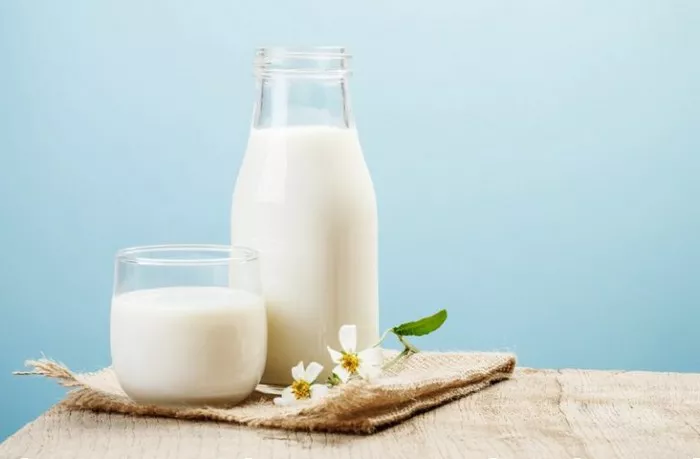High blood pressure, also known as hypertension, is a common health condition that affects millions of people worldwide. It is characterized by elevated blood pressure levels, which can put strain on the heart and blood vessels, leading to serious health complications if left untreated. Diet plays a crucial role in managing high blood pressure, and one dietary component that often comes under scrutiny is milk.
Milk is a staple in many diets and is rich in essential nutrients such as calcium, vitamin D, and protein. However, not all types of milk are created equal when it comes to their impact on blood pressure. In this article, we will explore which types of milk are good for high blood pressure and why.
Understanding High Blood Pressure
Before delving into the specifics of milk types, it’s important to understand what high blood pressure is and how it can be managed through diet. Blood pressure is the force of blood pushing against the walls of the arteries as the heart pumps blood. It is measured in millimeters of mercury (mmHg) and consists of two numbers: systolic pressure (the top number) and diastolic pressure (the bottom number).
A normal blood pressure reading is typically around 120/80 mmHg. However, readings consistently above this range may indicate hypertension. High blood pressure is a significant risk factor for heart disease, stroke, and other cardiovascular complications. Lifestyle changes, including dietary modifications, are often recommended to help manage blood pressure levels.
The Role of Milk in a High Blood Pressure Diet
Milk and dairy products are valued for their nutritional content, but their impact on blood pressure can vary depending on several factors. One key consideration is the fat content of the milk, as different types of milk (e.g., whole milk, low-fat milk, skim milk) contain varying levels of fat. Additionally, some individuals may have dietary sensitivities or preferences that influence their milk choices.
Types of Milk and Their Effect on Blood Pressure
Whole Milk: Whole milk contains the highest percentage of fat among common milk varieties. While it is rich in nutrients like calcium and vitamin D, the saturated fat content in whole milk may contribute to elevated cholesterol levels and potentially increase the risk of high blood pressure. For individuals with hypertension or those looking to manage their blood pressure, consuming whole milk in moderation is recommended.
1. Low-Fat Milk: Low-fat milk, also known as reduced-fat or 2% milk, has had some of the fat content removed, resulting in a lower percentage of saturated fat compared to whole milk. This makes it a better option for individuals concerned about their blood pressure. Low-fat milk still provides essential nutrients found in whole milk but with reduced fat content.
2. Skim Milk: Skim milk, also referred to as fat-free or non-fat milk, contains minimal to no fat. It is the lowest in calories and saturated fat among milk types, making it a suitable choice for those aiming to lower their overall fat intake and manage high blood pressure. Skim milk retains the nutritional benefits of milk without the added fat content.
3. Plant-Based Milk Alternatives: In recent years, plant-based milk alternatives such as almond milk, soy milk, and oat milk have gained popularity. These milk alternatives are typically lower in calories and saturated fat compared to whole milk. However, their nutrient profiles vary, and not all plant-based milks are fortified with calcium and vitamin D to the same extent as dairy milk. Individuals with high blood pressure should choose unsweetened, fortified plant-based milks to ensure adequate nutrient intake.
Considerations for Choosing Milk
When selecting milk as part of a high blood pressure diet, there are several factors to consider:
1. Fat Content: Opt for low-fat or skim milk varieties to reduce saturated fat intake.
2. Nutrient Fortification: Choose milk (dairy or plant-based) that is fortified with calcium and vitamin D for optimal bone health.
3. Added Sugars: Be mindful of added sugars in flavored milk products, as excessive sugar intake can contribute to weight gain and potentially impact blood pressure.
4. Individual Preferences: Consider dietary preferences, allergies, or intolerances when choosing milk alternatives.
Incorporating Milk Into a Balanced Diet
In addition to choosing the right type of milk, it’s essential to incorporate it into a balanced diet that supports overall heart health and blood pressure management. This includes consuming a variety of nutrient-dense foods such as fruits, vegetables, whole grains, lean proteins, and healthy fats.
For individuals with high blood pressure, the Dietary Approaches to Stop Hypertension (DASH) diet is often recommended. This eating plan emphasizes fruits, vegetables, whole grains, lean proteins, and low-fat dairy products, including milk. Following the DASH diet, along with other lifestyle modifications such as regular exercise and stress management, can help improve blood pressure control.
Conclusion
In conclusion, the type of milk that is good for high blood pressure depends on factors such as fat content, nutrient fortification, and individual dietary preferences. Low-fat and skim milk varieties are generally recommended for individuals with hypertension due to their lower saturated fat content. Plant-based milk alternatives can also be suitable options, provided they are fortified with essential nutrients.
Ultimately, the key to managing high blood pressure through diet is to make informed choices, prioritize nutrient-rich foods, and maintain a balanced eating pattern. Consulting with a healthcare professional or registered dietitian can provide personalized guidance on incorporating milk and other dietary strategies into an effective blood pressure management plan.

